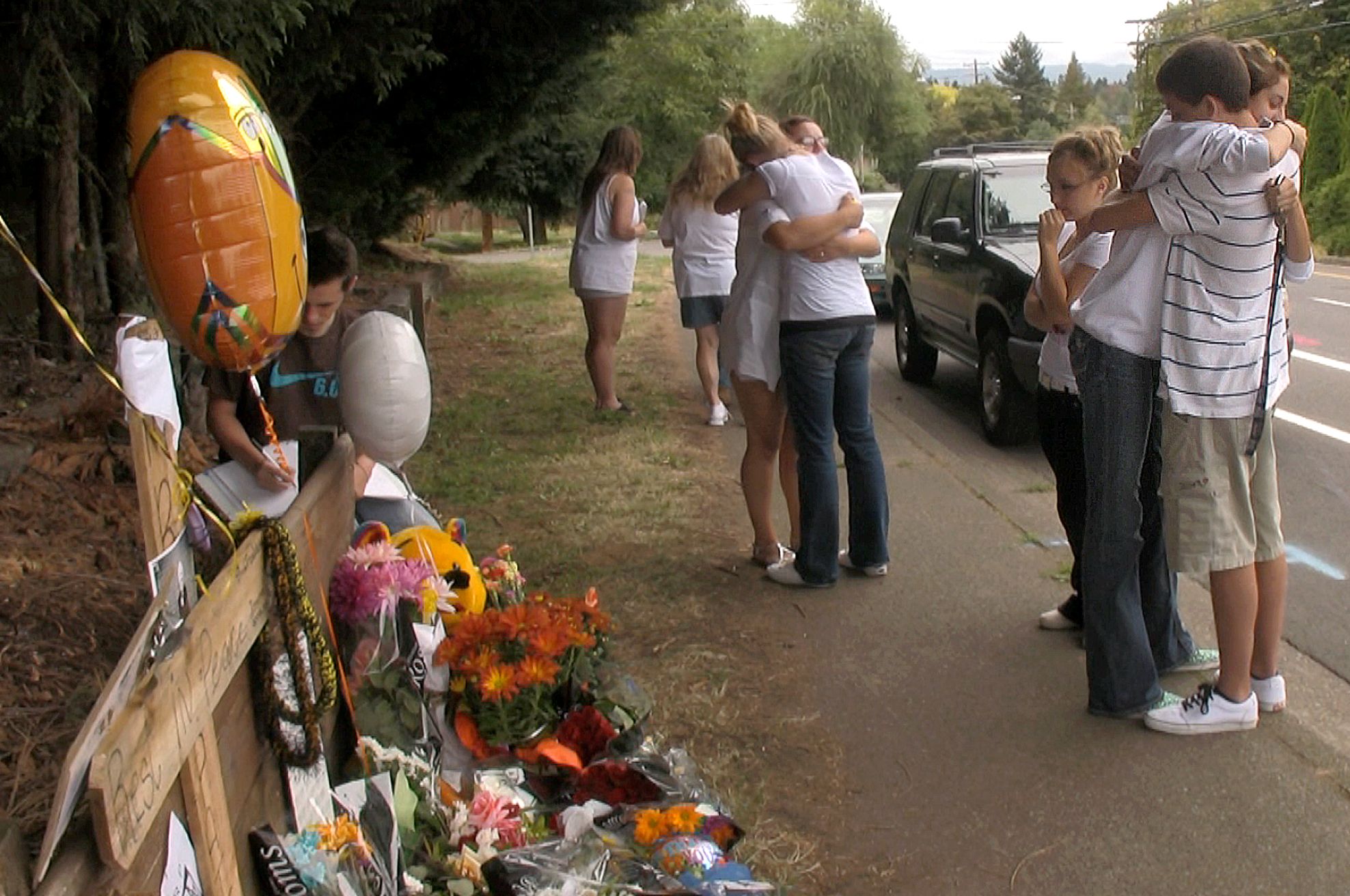VANCOUVER — St. Johns Road springs from this city’s center and makes a slow ascent northeast over State Highway 500 into a series of houses clustered around patches of grass and sandy playgrounds. For a few seconds in its northbound lane on the afternoon of Sept. 15, 2009, Antonio Cellestine’s head dipped down while his fingers tapped out a text message to his girlfriend.
Cellestine, distracted by his phone, swung his Plymouth Breeze into an adjacent bike lane where his math teacher at Hudson’s Bay High School, Gordon Patterson, pedaled home.
It was just after 4 p.m. Those few seconds — a dip of the head, taps of the fingers — would be among the defining moments in the lives of a dozen people in this Southwest Washington city. Within six months, Cellestine would be in prison, his pregnant girlfriend accused of abetting a cover-up and a “ghost bike” locked to the spot where his teacher died.
Later, when he faced a sentence for vehicular homicide, Cellestine would pledge to change his life. Maybe, he said, he could tour high schools and serve as an example of the consequences of distracted driving.



